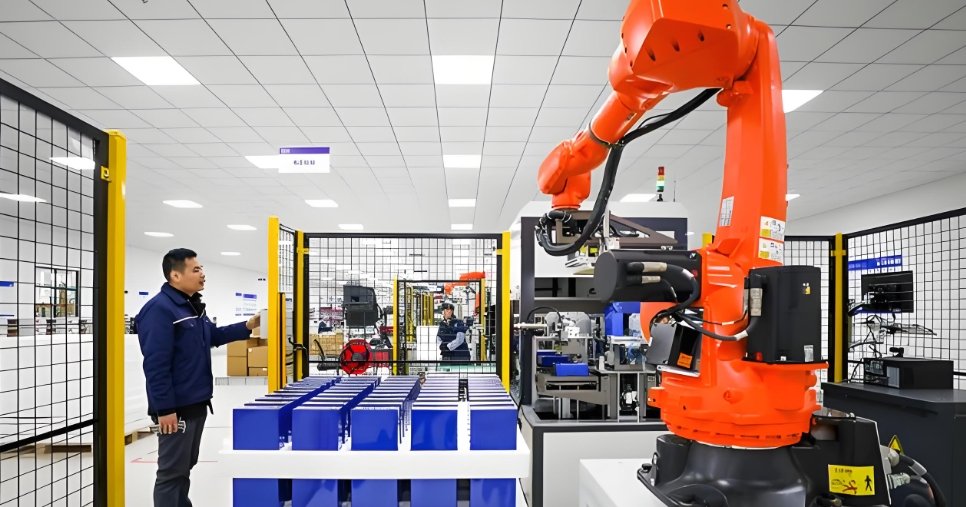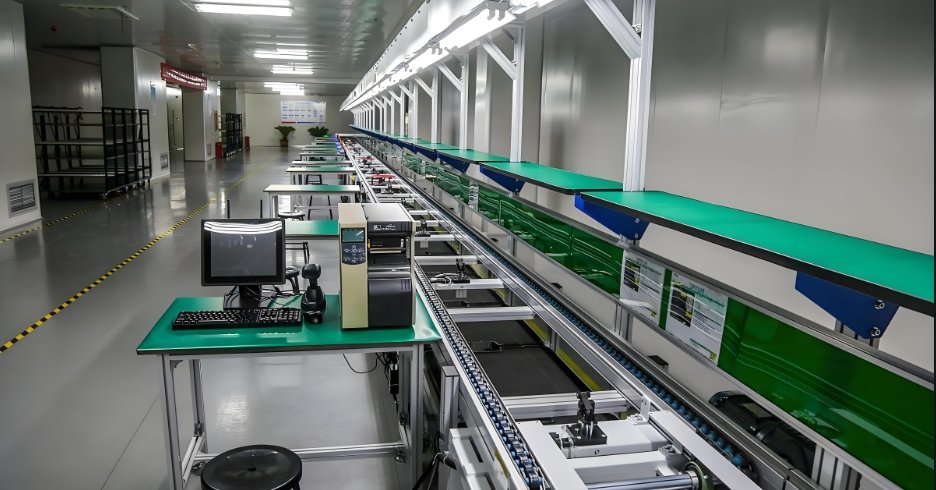Choosing the right LiFePO4 battery is crucial to ensuring the longevity and efficiency of your energy storage system. Let’s dive into the factors that matter.
To make the best choice, consider key factors like capacity, cycle life, safety features, and your specific usage needs.
Are you ready to find the perfect LiFePO4 battery for your needs? Keep reading to explore the factors that will guide your decision.
What Are the Key Factors to Consider When Choosing a LiFePO4 Battery?
When selecting a LiFePO4 battery, several key factors can influence its performance and suitability for your application.
Consider battery specifications, including capacity, voltage, cycle life, and safety features, to choose the best LiFePO4 battery for your needs.
When evaluating a LiFePO4 battery, there are several factors to take into account, each impacting the battery’s overall performance and suitability. The most important aspects to consider include:
Capacity
The capacity of a LiFePO4 battery determines how much energy it can store and supply. If you need to power larger appliances or systems, you’ll require a battery with a higher capacity.
Voltage
Voltage compatibility is essential when selecting a battery for a specific application. LiFePO4 batteries are available in various voltage configurations to suit everything from small home energy storage systems to large industrial applications.
Cycle Life
Cycle life of LiFePO4 batteries1: As previously mentioned, cycle life refers to the number of charge and discharge cycles a battery can undergo before its capacity begins to degrade. A higher cycle life means a longer-lasting and more reliable battery.
Safety Features
Safety features in LiFePO4 batteries2: Safety is a critical factor in battery selection. Look for LiFePO4 batteries with features like overcharge protection, thermal protection, and voltage regulation to ensure safe operation.
| Feature | Considerations |
|---|---|
| Capacity | Determines how much energy the battery can store |
| Voltage | Make sure it matches your application |
| Cycle Life | Higher cycle life ensures longer battery life |
| Safety Features | Look for overcharge, overheat, and voltage protection |
How Does Battery Capacity Affect Your LiFePO4 Battery Choice?
Battery capacity plays a pivotal role in determining how long your LiFePO4 battery will power your devices or systems.
The larger the capacity, the longer your battery can provide energy to your devices, but you need to balance it with your energy requirements.
Capacity is perhaps the most significant factor to consider when choosing a LiFePO4 battery. It indicates the total amount of energy the battery can store and release, typically measured in amp-hours (Ah) or kilowatt-hours (kWh). Here’s how it affects your selection:
Energy Consumption
Calculating required battery capacity3: The energy consumption of your devices or systems will directly influence the battery capacity you need. For example, a small home system might only require a 5kWh battery, while a larger commercial or industrial setup may need a 20kWh battery or more.
Duration of Use
If you need the battery to run for extended periods without recharging, a higher-capacity battery will be necessary. For instance, if you're storing solar energy for use during the night, you'll need a battery large enough to store enough power to cover your needs until morning.
Space and Budget
Cost and space trade-offs of high-capacity batteries4: Larger capacity batteries take up more space and cost more. Make sure to evaluate your available space and budget before selecting a battery with a higher capacity.
| Capacity (kWh) | Suitable Applications | Estimated Run Time |
|---|---|---|
| 5 | Small homes, RVs, off-grid systems | 4-6 hours depending on use |
| 10 | Medium homes, small commercial setups | 8-12 hours depending on use |
| 20 | Large homes, industrial applications | 24+ hours depending on use |
What Role Do Cycle Life and Warranty Play in Battery Selection?
Understanding cycle life and warranty terms can help you select a LiFePO4 battery that offers the best value and reliability for your investment.
Cycle life and warranty are vital for assessing the long-term cost-effectiveness and reliability of the battery you choose.
Cycle life is the number of complete charge and discharge cycles a battery can undergo before its capacity begins to degrade. A battery with a higher cycle life will last much longer, meaning fewer replacements and lower long-term costs.
Cycle Life
Cycle life in LiFePO4 batteries: LiFePO4 batteries are known for their impressive cycle life. Most LiFePO4 batteries last between 4,000 to 6,000 cycles, which can translate to 10-15 years of use. A higher cycle life means fewer replacements over time and better long-term value, especially if you rely heavily on your battery for energy storage.
Warranty
Understanding LiFePO4 battery warranties: The warranty of a LiFePO4 battery provides peace of mind. Manufacturers typically offer warranties ranging from 5 to 10 years. It’s important to check the terms of the warranty, especially regarding what’s covered—such as defects, performance degradation, or failure under normal use. A solid warranty ensures that you're protected if the battery doesn't perform as expected.
| Feature | LiFePO4 Battery Advantage |
|---|---|
| Cycle Life | 4,000 to 6,000 cycles |
| Warranty | Typically 5-10 years |
| Performance | Fewer replacements, long-term value |
How Can You Ensure the Quality and Safety of LiFePO4 Batteries?
Ensuring the quality and safety of your LiFePO4 battery is essential to avoid accidents and maximize performance.
Choose a reputable supplier with certifications, proper testing, and clear safety protocols to guarantee the quality and safety of your battery.
When purchasing a LiFePO4 battery, it’s critical to assess the quality and safety of the product. Here are some tips to ensure you make a reliable and safe purchase:
Certification
Certifications for LiFePO4 batteries5: Look for batteries that have certifications like CE, UL, or RoHS, which indicate that the battery complies with international safety standards. This ensures that the battery has been thoroughly tested for safety and performance.
Battery Management System (BMS)
Importance of BMS in LiFePO4 batteries6: A good quality LiFePO4 battery should have a built-in Battery Management System (BMS). The BMS helps to monitor and protect the battery from overcharging, discharging, and overheating. This plays a significant role in ensuring the longevity and safety of the battery.
Manufacturer Reputation
Choose a manufacturer with a strong reputation for producing high-quality batteries. Read reviews, check their certifications, and verify their manufacturing processes. Reliable manufacturers often have strict quality control measures in place to ensure that each battery meets the necessary standards.
| Quality Assurance | Tips to Ensure Safety and Quality |
|---|---|
| Certifications | Look for CE, UL, RoHS, etc. |
| BMS (Battery Management System) | Essential for safety and monitoring |
| Manufacturer Reputation | Research reviews, certifications, and manufacturing standards |
Conclusion
Choosing the right LiFePO4 battery depends on your energy needs, budget, and safety requirements. Consider factors like capacity, cycle life, and warranty to ensure long-term satisfaction.
Footnotes:
-
Cycle life measures how many charge and discharge cycles a battery can endure, directly impacting its lifespan and cost-effectiveness. ↩
-
Essential safety features in LiFePO4 batteries, such as overcharge and thermal protection, ensure reliable and secure operation in various applications. ↩
-
Determining the required battery capacity depends on the energy consumption of your devices or systems, ensuring uninterrupted performance over desired time periods. ↩
-
Higher-capacity batteries require more space and come with higher costs, making it essential to balance capacity needs with available resources and budget. ↩
-
Certifications like CE, UL, and RoHS confirm that a LiFePO4 battery complies with international safety and environmental standards. ↩
-
A Battery Management System (BMS) protects LiFePO4 batteries from overcharging, overheating, and discharging, ensuring their safety and longevity. ↩







